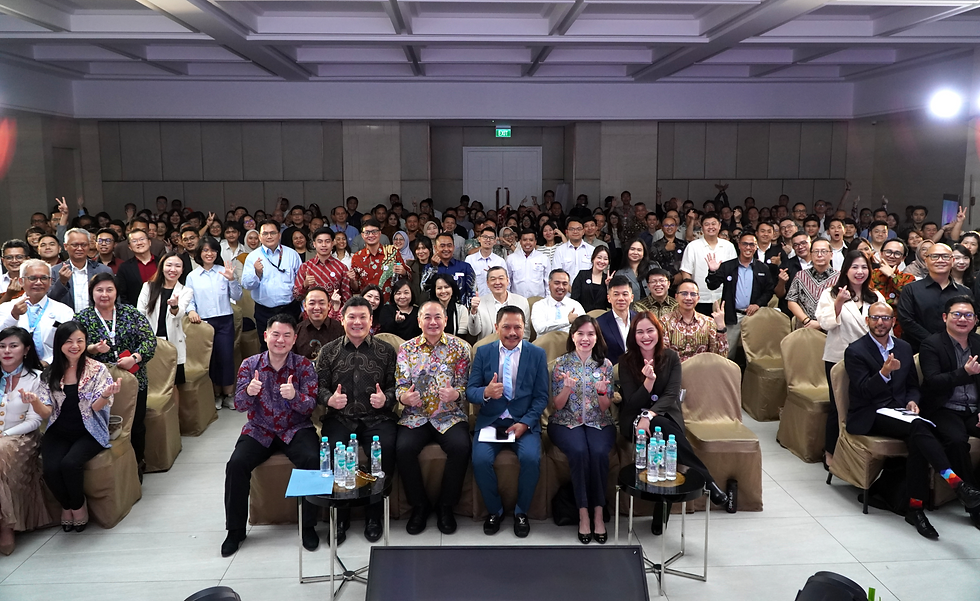Human Touch in a Digital World: Essential Soft Skills for Thriving with AI in the Workplace
- TechConnect

- Jan 12, 2024
- 3 min read

Picture source: LinkedIn
The past decades have witnessed remarkable technological advancements, with AI, particularly generative AI, standing out as a transformative force. The rapid evolution of AI capabilities prompts crucial reflections on the future of work and the skills required in the workforce. As AI excels in tasks once exclusive to humans, the modern workforce faces uncertainties about the implications for various professions. It is widely acknowledged that AI will impact nearly every job, with around half undergoing significant disruption. This shift raises questions about the relevance of traditional "hard" skills and credentials. Amidst the evolving AI landscape, the focus turns to identifying and prioritizing the workforce skills that will gain prominence in the face of automation.
There are five that rise to the surface and here’s why.
1. SOCIAL INTERACTION SKILLS
In the AI-dominated era, advanced social skills remain essential for many jobs. The modern workplace values emotional self-regulation, active listening, and effective collaboration. A 2015 study notes job growth in roles requiring significant social skills, while AI has narrowed performance gaps based on aptitude and seniority. This emphasizes the heightened significance of interpersonal communication, teamwork, and emotional intelligence. Proficiency in these areas offers distinct advantages, emphasizing their growing importance.
2. CREATIVITY
Contrary to the belief that AI will replace humans, those adept at leveraging AI, as shown in a recent study using Chat GPT 4.0, outperformed their non-AI counterparts. With a 12.2% increase in task completion, 25.1% faster performance, and a 40% improvement in quality, the study highlights the synergy of human creativity and critical thinking in effective AI utilization. The skill of crafting impactful AI prompts, involving creativity, understanding AI capabilities, and visualizing outcomes, emerges as a crucial skill in the evolving workplace where AI plays a significant role.
3. CRITICAL THINKING SKILLS
Critical thinking is paramount in evaluating AI responses as not all outputs guarantee validity, impartiality, accuracy, or freedom from errors. While generative AI swiftly produces extensive data and potential solutions, its outputs are contingent on patterns from vast datasets, which may introduce biases and inaccuracies. Human skills, such as logical reasoning, reflective thinking, rational thought, and unbiased evaluation, play a crucial role in scrutinizing AI-generated outputs. Logical reasoning helps identify flaws, reflective thinking considers broader implications, rational thought weighs evidence, and unbiased evaluation guards against biases. Employees must actively engage in assessing and refining AI outputs to ensure the success of the human-AI collaboration.
4. CURIOSITY
Curiosity, an innate drive for exploration and understanding, propels employees to ask questions, challenge assumptions, and engage with unfamiliar concepts. In the era of AI, where machines handle vast data efficiently, human curiosity gains significance. Unlike AI, curiosity allows for a depth of understanding, encouraging individuals to question, interpret, and reimagine knowledge. The ability to ask "why" or "how" leads to novel solutions and innovation, making curiosity a valuable trait in the age of AI.
5. UNBIASED, ETHICAL DECISION-MAKING
In the AI era, where algorithms increasingly influence decisions, safeguarding against biased and unfair judgments is essential. AI, relying on datasets that may reflect societal biases, can perpetuate discrimination. Uniquely human skills, particularly ethical decision-making, act as a crucial defense against unchecked algorithmic injustice, ensuring that AI deployment aligns with societal values and respects human rights.
As AI, especially generative AI, transforms the landscape of essential workplace skills, TechConnect is at the forefront, integrating AI into its organizational culture. With a vision of AI as a fundamental component of business DNA, TechConnect is committed to supporting its six business pillars and cultivating 300 CXOs. The development of an AI Culture is underway, anchored in three pillars: Technology, Skills, and Process Evaluation. This strategic initiative aligns with the evolving demands of the workplace, emphasizing uniquely human skills like social aptitude, critical thinking, creativity, and ethical decision-making, which are paramount in the age of advancing AI. This approach positions TechConnect at the forefront of fostering an innovative, adaptive, and ethically conscious workforce.
Source: FastCompany





Comments